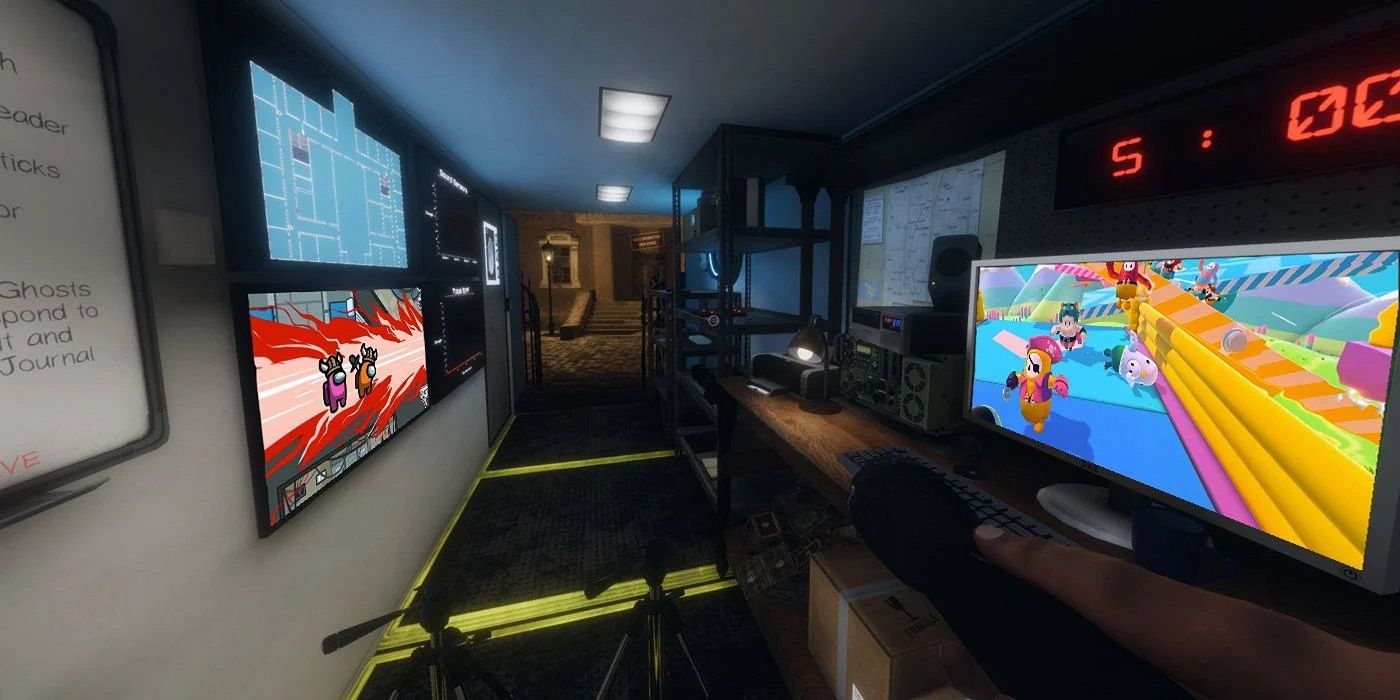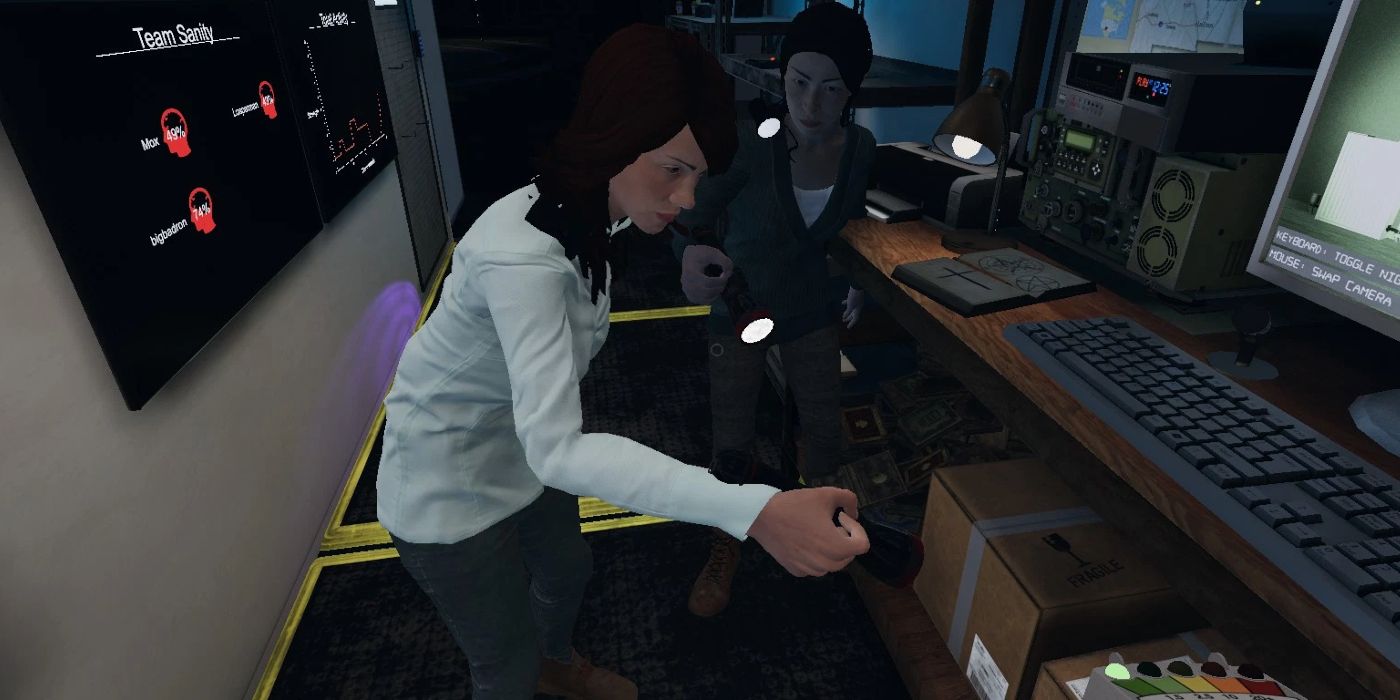
Game Rant recently spoke with James Gwertzman, head of cloud gaming at Microsoft. He talked at length about the future of games as platforms and the massive creativity that cloud technology can enable, but we also had more specific questions about recent events. A small set of games have blown up in popularity during the last year or so, often seemingly coming out of nowhere to become some of the most played titles in the world. They all share a few key characteristics, and Gwertzman had some insight as to why.
The best examples of this phenomenon are Fall Guys, Among Us, and Phasmophobia. They are light, casual games that can run on almost any platform because of low performance requirements, and typically represent a mode for social interaction rather than the fierce competition or story-driven narratives of other games. All of them come from very humble beginnings as well. Phasmophobia started as a pet project and became one of the top VR games of the year, Fall Guys struggled at first to offer good enough anti-cheat services because of a massive influx of players, and Among Us went completely forgotten for years before it caught on.
RELATED: Among Us Player Count Dipped in December, Still Most Popular Game
Because Gwertzman had discussed Microsoft's goal of building up games as platforms and communities, not just services, we asked him if Microsoft and other industry leaders had learned anything from the meteoric rise of these titles. It's hard to ignore the role of the global COVID-19 pandemic in their success as outlets for socialization, but we wondered if the giant, uncontrolled experiment of quarantines and lockdowns had shed any light on how better to allow games to do what they do best: connect people. Gwertzman didn't hesitate.
A couple of thoughts: One is... this is a supporting vote for the cloud. When these games blew up, developers were able to keep it going because of the cloud. A couple years ago a game like Among Us wouldn’t have happened. They would have stalled out. They would have had five servers, and they would’ve saturated them, taken six weeks to get new ones, and they would’ve lost the opportunity. It’s cool that now the cloud is enabling that kind of runaway growth.
I agree that games are providing social interactions and opportunities to interact with our colleagues when we can’t in real life. I go to Burning Man every year, and last year I couldn’t go because it was cancelled. They tried to host it online, but nobody went because, frankly, I don’t think they asked a game designer to help design it.... There are already virtual concert companies now, and people are starting to see that games can really bring people together from the micro level of four people up to hundreds of thousands of players, even millions of players. We’re learning from that and learning how to embrace that.

The fact that these games which exploded in popularity would not have been possible without recent innovations in cloud technology is another side to the story that certainly isn't obvious at first blush. Their growth may have been less due to the pandemic than originally thought, and other factors, like available technology, might have been at play. Whatever the case, it's clear that companies are playing close attention to how those games managed to bring people together. Gwertzman then brought up another point about what their success means for the industry:
But, going back to these smaller games, it’s a reminder that a big hit can come from anywhere and it’s not just the EAs and Activisions of the world who can afford to build big games. A garage developer with two employees can build a game and as long as they did it right, if the game takes off, they can take off with it. It means the playing field is pretty level. That’s exciting because big AAA games have huge budgets, which means they have to play it safe. They’re not going to spend $200,000,000 on a game if they’re worried whether it’s gonna sell.... What these smaller games show us is that you can afford to take risks, and many will fail, but if you hit it right you can have tens of millions of people playing your game overnight.
It's exciting to hear how new technologies are democratizing the game development process. In another portion of the interview, Gwertzman described a few of the many ways that game development is opening up to smaller studios and even individual players. Meanwhile, the large-scale cloud computing technologies that power some of the world's biggest games are only becoming more accessible. If these trends in gaming keep giving us dark-horse hits like Among Us and Phasmophobia, it will only serve to improve the lives of gamers everywhere.
MORE: Microsoft's Head of Cloud Gaming Talks Future of AI in Gaming, Experimental Tech

